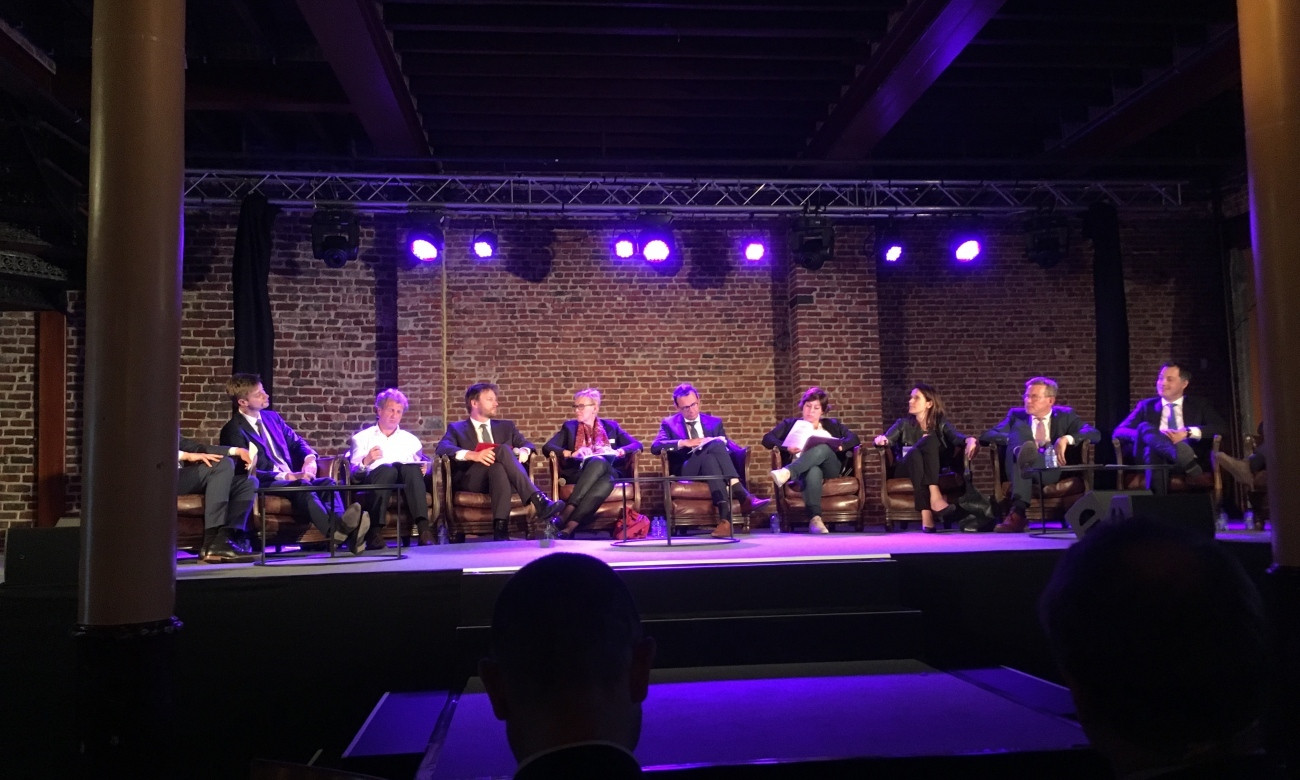Febelfin advocates for a future pact between governments and the financial sector
25 April 2019 - 3 min Reading time
Political parties open to constructive cooperation with the financial sector at the political debate Febelfin
Febelfin held a well-attended political debate last night. With the political memorandum of the financial sector as a guide, party leaders debated their election programs and the role of the financial sector in them.
La Tentation in the center of Brussels was transformed into a political café for one evening. Alexander De Croo (Open VLD), Johan Van Overtveldt (NVA), Wouter Beke (CD&V), Meyrem Almaci (Groen), Georges Gilkinet (Ecolo), Antoine de Borman (CDH), Jan Bertels (SPA), Sophie Wilmès (MR), and Karine Lalieux (PS) were present.

As a warm-up, the politicians were allowed to give a score to the financial sector as it is now. On average, they gave it a solid 7 out of 10. There was praise for the profound reforms that the sector has implemented since the financial crisis: healthier buffers, increased focus on sustainability, and efforts in innovation. Criticism mainly arose regarding how some institutions have treated their staff during restructuring
The debate focused on the three key points from the political memorandum that Febelfin has developed for the next government. By 2024, every Belgian should:
- Be able to rely more than ever on innovative and secure financial services,
- Be able to live in a more sustainable economy,
- Be able to trust a financial sector that is fully committed to its societal role
Johan Thijs, Chairman of Febelfin, and Karel Van Eetvelt, CEO of Febelfin, were pleased after the event: 'Policymakers are aware of the profound reforms the financial sector has implemented in recent years. But it doesn't stop there. New challenges such as increasing digitization can impact the sector just as severely as the financial crisis.
Therefore, the Chairman and CEO are calling for a future pact to be established with the financial sector based on Febelfin's political memorandum. In it, they propose collaborating on expanding digital payment services to combat fraud and money laundering, exploring ways for banks to make their employees more readily available to other sectors, and examining how loans can assist individuals and businesses in making their real estate more energy-efficient.
